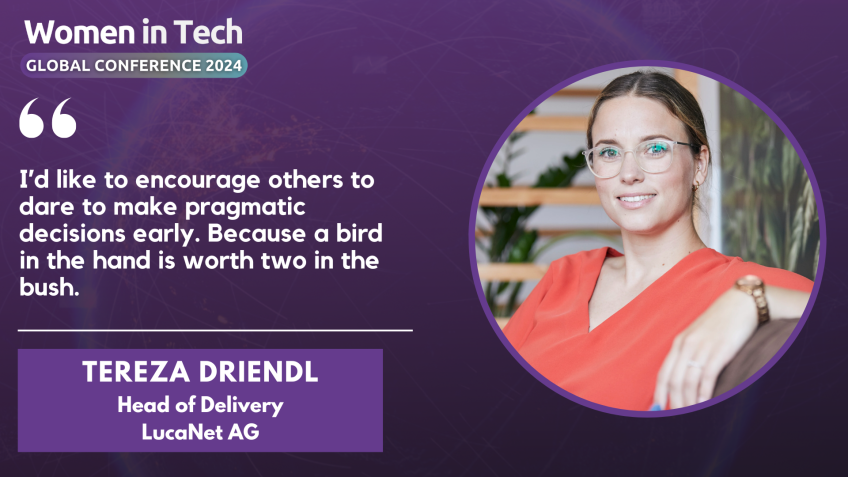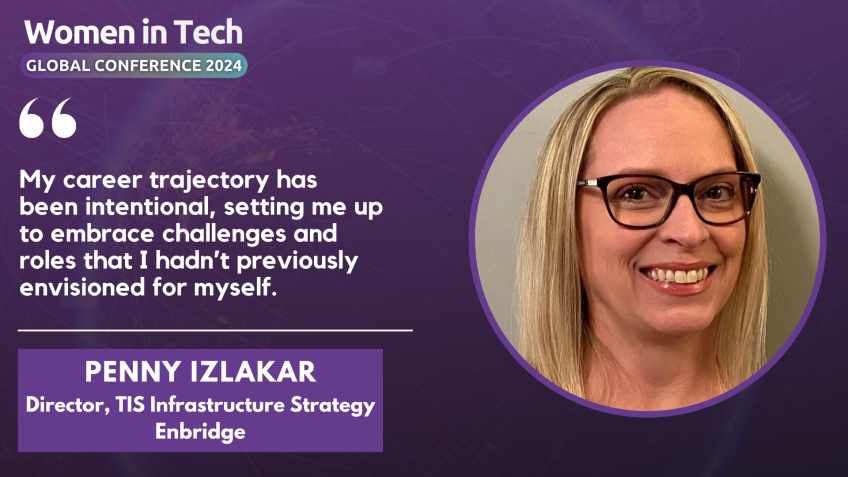Build an Influential Brand at Work to Boost your Career
Boost Your Career by Building an Influential Brand at Work
Hello everyone, it's my pleasure to guide you through the journey of enhancing your career growth through personal branding. We're going to delve into strategies that will help you build an influential brand at work. Once you digest this, you'll be able to walk away with a few actionable tips that not only boost your career growth but truly set you apart in your professional territory.
Understanding Personal Branding
The first step is identifying and understanding the concept of a personal brand. Simply put, a personal brand is about sharing your unique professional story. It's also the perception that people have about us which aligns with our self-perception. When this alignment occurs, it implies that a powerful, influential, and effective personal brand has been crafted. This synchrony can immensely increase your career growth opportunities.
Boosting Career Growth with Personal Branding: Action Points
Once we've identified what personal branding is and its importance, the next step is to look into the actionable strategies that can be implemented to achieve this personal branding goal.
1. Set Your Career Agenda
Only a fraction of professionals have a well-defined career plan; many are just going with the flow. Developing a career plan, particularly one that combines both short-term and long-term goals, is very instrumental in career growth. Just like an Uber driver cannot commence a journey without knowing the destination, you can't truly progress in your career without having an endpoint in mind.
2. Pay Attention to Feedback
View your manager as a partner in career growth. Your manager can offer invaluable feedback and higher opportunities. Be open, transparent and work hard to create that reputation. You should also solicit regular feedback from your team as it helps you pinpoint areas for improvement.
3. Project Your Accomplishments
To enhance your career growth, you should track and confidently share your professional accomplishments. Accomplishments supported by tangible facts are more believable. Remember that sharing successes can inspire others and foster their career growth as well.
4. Effective Networking
Going beyond your immediate team can open up a world of opportunities. Having casual coffee chats or virtual discussions with colleagues encourages knowledge exchange and exposes you to new perspectives. Each networking activity executed should be attached to a specific goal.
Bear in mind, this process requires patience and time. But with consistent work towards your goals, personal branding can serve as a launching pad that rockets your career into new heights. For more personal branding tips and discussions, do well to keep in touch. Let's stay connected and support each other on this journey of continuous career growth.
Video Transcription
All right. Hello everyone. Uh I'm very excited to be talking to all of you. Uh The Women Tech Global Conference 2020 was my first virtual conference and I'm really happy to be on the other side of the screen talking to all of you.And the best part that I love about this conference is the fact that I can see such energy and such willingness amongst all women in tech to open up endless possibilities for their career and really grow in their career. So today in this presentation, uh I'm gonna talk about building an influential brand at work. And if I were to just sum up my session in one line, uh that would be, I would give you some strategies to boost your career growth. That's all that there is to this session. By the end of this session, you'll walk away with a few actionable tips that will help you to boost your career growth. Now, before we begin, I'll uh quickly walk you through what I do. Uh so that you can relate to me as we go through the session. So I usually, there's a common tendency to define people by their job title. And what the world sees me as is the software developer for Oracle India. Specifically, I am the technical lead of the artificial in Intelligence team. Uh And I've joined Oracle straight out of college after my B tech um three or four years ago.
So I've been having a corporate experience of four years and being the data driven person that I am, I thought I would define myself uh in numbers. So uh these numbers are just to show you the experiments that I've done to understand what drives me and what I'm passionate about and to really find something that keeps me driven even during the weekends. Uh Having said that what you would need for the next 20 minutes uh is just three things. Uh First, I hope that you can get uh get yourself a cup of coffee or tea, just sit back and relax because we are about to get real and the session is full of stories. So I hope that you can make the most out of it also for any particular session that you attend in this conference, whether it's today or tomorrow. I encourage that you quickly take notes from those sessions because the speakers can talk about 1000 strategies. But unless you take one percent of it and apply it in your life, it is not going to be of any use. So please take notes during the session.
If there's anything that works for you if it resonates with you, please take notes and uh whenever you get a chance, try to reflect on that and try to implement it in your life. Having said that let's begin with our session. The first thing is what is personal brand because we're going to start from the very scratch and understand what personal brand is. And in simple terms, personal brand is about sharing your story. So uh when you think about personal brand, uh you can think of it this way that if I were to go to your workplace, and if I were to pick 10 people who work closely with you and ask them what they think of you. And then I would come to you and ask you what you think of yourself. So you would have an effective personal brand when both of these align. In other words, what is your perspective of yourself versus what people think about you when that aligns, it means that you have built an influential personal brand and imagine what would happen when both of these things align, especially at your workplace because then there would be no force that could stop you from achieving your career growth.
Because what you are working towards what you think of yourself is the same as what other people think of you. So they would nominate you for positions, they would give you the opportunities and that's how you would eventually grow in your career. So that's personal brand. And in this particular session, we're gonna talk about the strategies that will help you to boost your career growth by aligning others perception with your perception. So the first thing is when we think about your brand at work, it is affected by a multitude of factors and some of these factors, they are what you do at an individual level. And the other factors are what you do when you speak to other people and they involve the people around you. So I would like you to give it a thought and tell me in the chat, how would you define yourself? And remember that your job title is not something that will define you. You are much more than that. That's just one part of your life. So think about it and tell me how would you define yourself apart from your job title? What is it that drives you? So when you think about your brand at work, you have to be productive. It's about how you get your work done. It's about whether you are a high performer. That's the first thing that we want to achieve.
And I'm sure that all of you are already working towards it. The next thing is your ability to tackle challenges and to solve problems. So your problem solving ability, no matter which profession you are in, your problem solving ability is always going to be looked at and then what is the visibility that you have? Amongst your stakeholders. That's another thing. So whether they see you as a hard working person, whether they see you as a person who is dedicated, or whether they see you as a person who is arrogant, you want to make sure that your visibility amongst all the higher leadership and stakeholders is as good as what you think of yourself.
And then comes the part where which involves your interaction with others. So it's very, it's very important to network at your workplace. But it's also important that you do the right networking that attracts opportunities and these opportunities will then help you grow in your career and then your communication with people, how you effectively interact with others or whether it's a presentation that you're giving, how well do you deliver that presentation or if it's a negotiation with your boss for a raise or for the next promotion, how well do you communicate when it comes to uh getting any goal achieved?
And the next thing is the feedback. So your ability to accept negative feedback, that is also going to talk a lot about how mature you are and how dedicated you are with respect to your career. So now let's talk about what you can do to boost your career growth and what you can do to align your personal brand with what others think of you. So the first thing is setting an agenda. Now, I've talked to a lot of people in my workplace. And believe me that only 1% of people actually have a plan. Others are just going with the flow. They're just running after the next promotion and the next race. But if I ask them what their long term vision is, they wouldn't know. So think of your career as an Uber or as a car. Ok. So if you start from one source, that's where you are right now, you need to define the destination, unless and until you define the destination, you cannot set the GPS to map you and give you the directions to go to that place. So you have to be very clear with what you want out of your career. And for that, it's very important to have a plan. So what do we mean when we say have a plan? One thing is the career development plan.
So in the career development plan, you would set yourself some short term goals, you would set yourself some long term goals and I'll give you an example in the next slide. Uh So don't worry about the template. I don't want to give you any specific template and make this process boring. But what I want to highlight here is you have to take out some time and just take a step back and pause and reflect on what your goal are and what you are working towards. What are you chasing? Because it's, it's possible that throughout the corporate race, the way that it's viewed as a race, you might lose your spark and you might forget what you really want. So the personal goals, uh we were talking about a situation where let's say you run into a fight with your partner and then when, when, then you go back to work and you have a bad day at work as well, consider the reverse situation that you get a promotion at work, come back home and you're happy at, at your house as well.
And you, you want to spend your time with your family and enjoy. So both of these things you can see are interrelated. So your personal and professional development, it is interrelated to each other. And it's important that when you're thinking about your professional goals, you also set yourself some personal goals. Now, let's say the goals are all set and you're good to go. But it's also important that you execute these goals depending on your priorities, the goals might change.
So you could do a monthly self check in with yourself where you set some time on your calendar and review those goals and see where you are and track your progress with respect to those goals. Unless you get anything on your calendar, it's not gonna work. So if you want to work towards your goals, make sure that you get it on your calendar. Now, this is a together just to give you an idea of what a career development plan can look like it doesn't have to be a fancy Excel sheet. It is just, it can just be a piece of paper where you write down what your goals are because all of this is just being done so that you can be aware of what your goals are and self-awareness is an instrumental step in your career growth. So this is an example of my career development plan where I, where I enlist what drives me? I like uh I like connecting to other people. I like relating to them. So, empathy is a big part of what defines me. I like to innovate and leadership is something that's my by being in a leadership position. So my term goals could include the next career stage or because I love public speaking, I would want to become a key future as well and I'm working towards it and then there could be the long term goals where I want to travel the world and I want to work on the product strategy.
So in this particular slide, I have combined my personal and professional development plan in one and you could do the same. So the key is to find out what works for you. If you want to join. If you want to combine your personal and professional goals in one slide, that's completely fine. But what's important is that every now and then you take a moment to reflect on those goals, prioritize those goals and discard those that are no longer relevant. Next is the time for, you know, what you want, you have the clarity of your goal, how would you execute and how would you achieve those goals? So we talk uh feedback, we talked about feedback being a huge part of what our brand at work is. So how would you give attention to feedback and especially what we're talking about here is the negative feedback. So first is the first underlying to view your manager or your boss as a partner in career growth. A lot of times I talk to people and they ask me today, I said this to my manager. What would he think today? I said this to my manager. What would she think? Can I ask this to my manager? Me, right. So these are common things that we have in our mind.
But remember that your manager is also a human being and if you treat them as a partner in your career growth, and if you show them the potential to constantly grow and improve every day, they are going to support you in every way that they can. So make sure that you are transparent about your goals with them. Once you have a good idea of what your career development plan looks like, maybe have a check in with your manager and walk them through those goals so that they can support you and they can nominate you for those positions when they open up because your manager has access to higher opportunities than you.
And they would be able to connect you to those opportunities if you are transparent with them. And obviously, the underlying assumption of all of this is that you're doing good at work and you will have to work hard to achieve that reputation. When you talk to your manager, then also try to solicit regular feedback, not just from your manager, but also from your team because they will give you those pointers that you need to work on in order to improve yourself. So let's say you're very good technically, but you're not good with people. And then you want to go to a leadership position, then you get that area as you act to work on and then you can work towards improving those skills. So that's what we want. We want to have these pointers that we can work towards and for that you have to solicit regular feedback, your team and your manager next is projecting your accomplishments. Now, this is uh something that really saddens me, especially when it comes to women, we really don't prefer to project our accomplishments. And the first thing that you will have to do is understand that all of us have self doubt, all of us, we tend to doubt ourselves. And that's OK. The fact that you have a self doubt is sh shows you that you care about that goal and you want to really so embrace self doubt as a part of life and still do what you're supposed to do.
And you also have to track your accomplishments because to be able to speak about your accomplishments in a way that doesn't sound like bragging. You have to track it and you have to support it with facts. So track your accomplishments any day that you do something good at work, make sure that you track it and then make a story out of it and support it with facts. So let's say that you've got uh you were very productive today and you were able to complete 60% of the total items that were assigned to your team. Then make sure that you make a note of it and talk to your manager in the next meeting of yours so that you are constantly feeding them with the information that you are doing good at your job and that you deserve to grow in your career and that you deserve the next opportunity that helps you support this and view your accomplishment, view, sharing your accomplishment, not as bragging, but as a fact that it can inspire others.
Now, when I speak to all of you today, I can inspire you to be the speaker for the next conference. When you attend a conference, you are inspiring thousands of other girls to start attending women tech conference so that they can network with people. So we all through our actions are inspiring others. And unless we make it a point that we talk about our accomplishments, it's not going to inspire others and it's not going to continue the chain. The next thing is networking for opportunities. So we all want to do networking and networking is a term that all the gurus talk about. But the networking has to be done effectively and for that, you have to go beyond your team. Now, our team becomes our comfort zone when we start working and we rarely go beyond our team and interact with others. But don't let that define you. Go beyond your team. Talk to other people, understand what other career professions this because it might be possible that you might be more interested in another career profession. It can open up a lot of opportunities for you have coffee chats with people at your workplace, ask them for a cup of coffee, ask them for a virtual coffee chat and then you can talk to them and understand what they are working on, understand about the workplace and understand how you can do better.
A lot of times we tend to procrastinate about our goal. But when we see someone who's already achieved that goal, just talking to that person gives us a sense of direction to work towards and that can help you to further develop your career development plan. Next is we, you always have to have a networking goal. If you're talking to this person, maybe you want to understand about leadership. If you're talking to this person, maybe you want to understand how product management works. So make sure that you have a goal that you start with. And the underlying goal for all of the networking that you do at your workplace is to understand your workplace better. Next is take your time because all of this, I know that I've given you some strategies and these are actionable tips that you can work on, but it's not going to come very easily. So you take your time and adjust to this slowly, but make sure that you're growing at least by 1% every day because career is a long term goal and you will get where you want to be only by working on it every day. So whenever you take rest, reset and resume, but don't give up at any cost and keep going. And if you would love to talk to me or if you need any help, I'm happy to connect with all of you. So stay connected.
You can find me on you us on youtube. I'm on Insta Twitter and linkedin as well. And I will quickly um share my handles with all of you so that you can connect with me and let me know if you have any questions for me. I have two more minutes for the questions and I would be happy to answer that. Make sure that you connect with me and we can talk about this in detail. Uh It was really nice talking to all of you. If you have any questions, I'm open for questions, make sure to add me on linkedin. And uh I have a podcast on youtube where I talk about personal branding, especially for professionals. So if you could add me there, I would love to connect with you. OK? I have a question from how to start adding things to calendar. As you said, if you don't add, it doesn't happen. Absolutely, Maggie, that's a great question. Um So when it comes to your, if you have planned that you want to revisit your goals, then just have a personal calendar. I'm not talking about the workplace calendar, but especially the calendar of your personal calendar and you have to book it for your weekends. So when it comes to your weekends, make sure that you have at least 1 to 2 tasks where you're going over your goals or working on achieving those goals.
So simply take something like Google calendar and uh have an event over there where you would just uh whenever you get a reminder for that particular event, you would just take some time with yourself and spend some time do some brainstorming on what your goals are. Uh I hope that answers your question. You just have to add those to your calendar and make sure that whatever way works for you go with that uh The next question is from Malika, how can we stay motivated or inspired to do more all day, even in times when everything seems to be going downhill? So Malika, that's, that's a good question. It's a very philosophical question. But you have to understand the fact that uh it's not easy, it's not easy for anyone who does it. But if, if you are passionate about driving your own career, remember that you are at the driver's seat and your career is going to be what you make of it. So if you remember that, whenever you feel low, there are some days where we feel absolutely low and cannot do anything at that time, just take rest.
But when you can make sure that you re and you shouldn't be afraid of failures, failures are going to redefine and they are going to define your direction of what you can do and what you can't. So let failures be your learning points and make sure that you come back to it with all your vigor and continue. If there are little things that you can do which keep you motivated. Maybe talking to people keeps you motivated when I have conversations with other people that keeps me motivated. So find what it, that can help you escape from the corporate world and that can find uh help you find your own spark. So if you like painting, do more of that, if you like talking to people do more of that, but find an escape from the corporate world and then whenever you come back, come back with all your vigor. And uh the last question is from Nema, what to do when the other person doesn't respond back while communicating in linkedin or networking in linkedin. All right. So when you are reaching out to the other person, uh remember that it's like uh growing uh it, it's like growing plants. So you might plant 1000 seeds, but only a few of those will germinate.
So you might want to connect with 100 people and only 10 will reach back. But the ones who will reach back will be able to give you a day. So if you have defined yourself a networking goal, make sure that you are reaching out to a lot of those people who have already achieved those goals. And then at least one person will definitely connect back with you. And one conversation is all you need to get a understanding of that, of that aspect. So I hope that this session was um helpful uh to all of you uh slides. I'll share it with all of you in a while and I've taken a leave from my work to do a lot of networking today. So if you want to connect with me, uh please do. So, I'll talk to all of you and understand um how you like my session and with any questions that you would have Uh Thank you so much to all of you. Thank you for attending.





